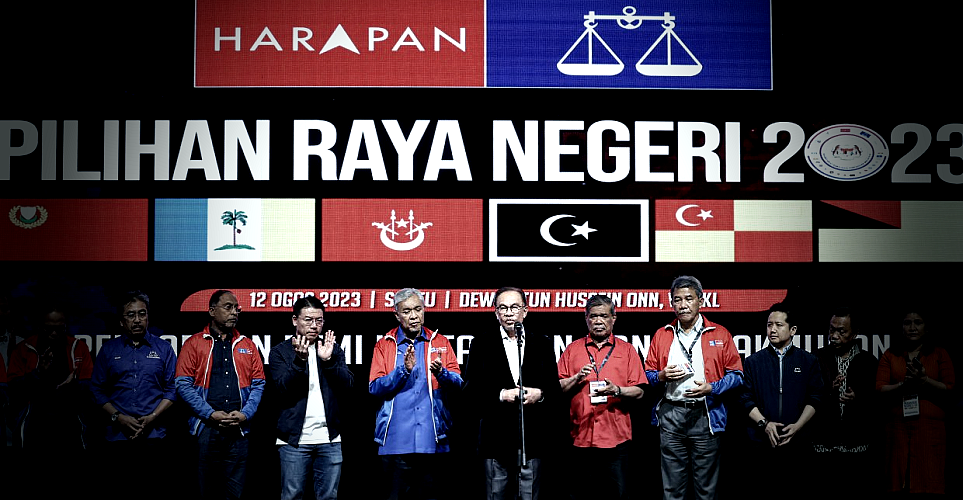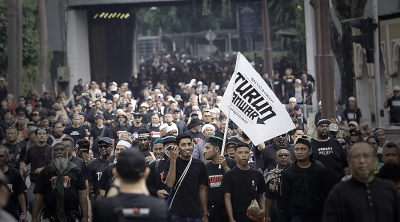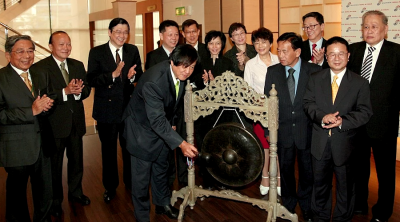The Unity Government must never forsake its insistence in diversity just because it badly needs the votes.
The Unity Government’s performance in the six state elections has not been utterly satisfactory. If it thinks that retaining the three state administrations is good enough to keep the government stable for the next four years, and is not going to do anything else, then a change of government could be a reality four years down the road.
Yes, the PH-BN pact managed to win 49.5% of popular vote, just a shade higher than PN’s 49.3%. If the elections were a referendum, then the Unity Government has not actually lost.
Nevertheless, if we compare that with the election outcome last November, PH-BN’s popular vote has suffered a drastic slide.
A simple analysis of the seats won in the just concluded state elections: PN has made a major breakthrough in Negeri Sembilan with five seats won from none in the last state election. In Terengganu, the coalition had a clean sweep of all the 33 state seats up for grabs.
A combined Kelantan-Kedah tally puts the PN well ahead at 76 to 5 (pre-election 59 to 19, excluding other parties). In Penang, the number of seats has jumped from a single seat five years ago to 11 now while in Selangor, PN won 11 more seats this time (22 to 34) to smash the Unity Government’s two-thirds majority advantage.
For all the six states combined, the tally is 146 to 99 to PN’s advantage, reversing the Unity Government’s 150 to 95 lead before the elections.
There are several factors that have contributed to the Unity Government’s failure in stopping PN’s aggressive advances.
Firstly, the synergistic effects of the PH-BN combination fail to take off, showing that such a model of collaboration is unacceptable to the Malay electorate.
Secondly, PKR’s thinned support shows that Anwar’s approval rating is poor among the Malays.
Thirdly, Umno’s humiliating defeats speaks volumes of the Malay community’s rejection of Ahmad Zahid Hamidi.
Fourthly, the PAS “green wave” continues to swell, and PN is now taking over BN’s status in the Malay society.
If this trend were to go on, the next general election four years later will see the Islamist party to continue to reign supreme, while the Unity Government can only survive with the support of urban mixed constituencies and the two regions in East Malaysia, Sabah and Sarawak.
Given the lackadaisical performance in the elections, how is the Unity Government going to move on from here? PM Anwar Ibrahim must not make a right tilt just to please the conservative Malay voters because this will make him alienated by liberal Malays and 30% of non-Malay communities.
Steering a U-turn now will deal a fatal blow on the Unity Government.

There’s no turning back for sure, but Anwar still has four more years to press on with his insistence on pluralism and battling corruption in order to woo more foreign investments to stimulate the national economy, stabilize the ringgit exchange rate and hence check inflation, improve the livelihood of Malaysians in particular the poor, implement major public infrastructure projects to spearhead business development and create new job opportunities, systematically promote the development of key industries and grooming of talent while lifting the efficiency of the country’s civil service system…
Policies that boost the country’s development may not necessarily win the government the much needed vote support, but at least Anwar can do something for the well-being of the nation and her people even if eventually the voters still decide to turn against him.
Umno was doing very badly in the state elections. A party that used to all-powerful before 2018 could very likely be crushed completely come the next general election. Such a dramatic downfall in a span of less than a decade could be attributed to three factors: a jailed Najib, a rejected Ahmad Zahid, and an unaccepted collaboration with DAP.
From the remarks by Umno information chief Isham Jalil on Sunday, there is obviously a severe cognitive disparity between Umno leaders, party grassroots and the Malay voters. Up this point Isham still believes that if Najib were around to campaign, Umno would have much better chances.
Isham has apparently forgotten how Umno has come to what it is today. How can anyone pin his hopes on someone who has been convicted and is now serving his jail sentence?
Ahmad Zahid’s continued hold to power is itself highly controversial — from the party disunity before last year’s election and the subsequent defeat, to the even more dismal performance in last weekend’s state elections, he has never assumed his political responsibility.
The Umno leadership finds itself drifting further and further away from the party’s anti-establishment faction, party grassroots and the Malay voters. A decisive reform is mandatory if Umno still yearns for a comeback.
DAP is the biggest winner in the six state elections, buoyed by the undivided support from its non-Malay support base and some Malays. Unfortunately this will trigger the suspicion from within and without the Unity Government.
Isham Jalil said it was not worth chasing 500 DAP votes just to end up losing 5,000 Malay votes in the process.
Apparently DAP must work very much harder to alter the negative stereotyping of DAP in the Malay community.
Given the poor showing in state elections, the Unity Government has no other way but to continue to press ahead with its reform agenda, because flirting with 3R issues and abandoning pluralism are exactly what PN is now doing. The Unity Government must never forsake its insistence in diversity just because it badly needs the votes.
ADVERTISEMENT
ADVERTISEMENT








































